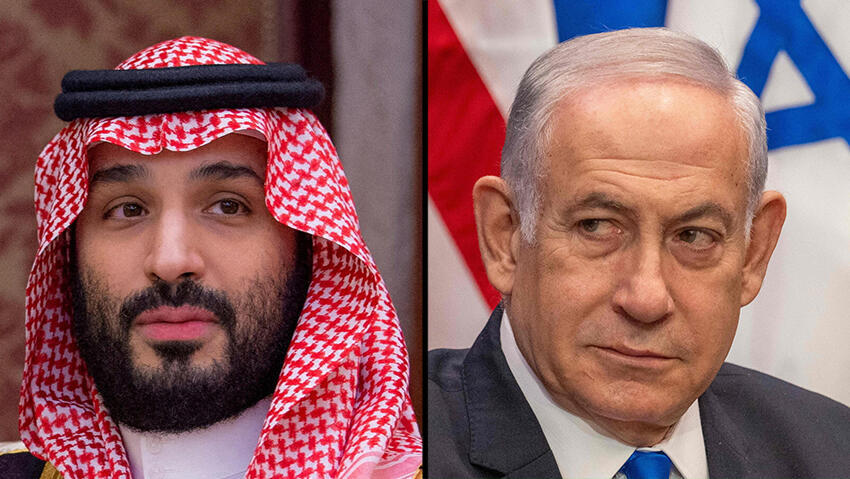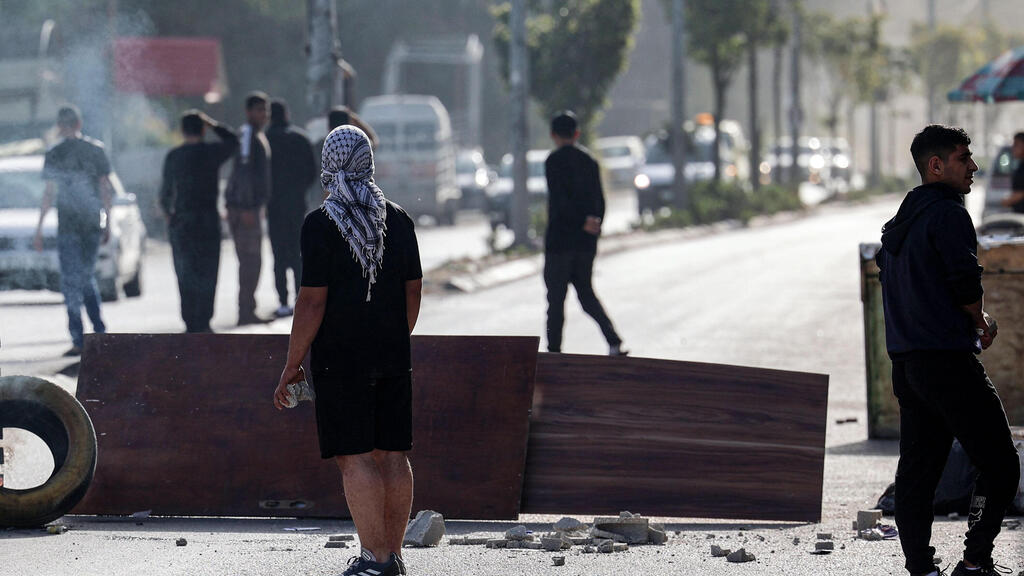In October 1987, 36 years ago, I completed my role as head of the Civil Administration in the West Bank and retired from the Israel Defense Forces. The area over which I held responsibility was relatively calm at the time. The only American demand from the Israeli government was to improve the Palestinian population’s quality of life.
More stories:
Defense Minister Yitzhak Rabin instructed us to use all of our resources to carry out this task. There was no sense of urgency in the international community for a diplomatic solution to the Israeli-Palestinian conflict. A balance of power existed in the national unity government between Prime Minister Yitzhak Shamir and his senior ministers Rabin and Peres that paralyzed any possibility of a successful diplomatic initiative.
3 View gallery


Mohammed Bin Salman, Benjamin Netanyahu
(Photo: Bandar Algaloud / Reuters, Jim Watson / AFP )
In the retirement interviews I gave as well as in closed discussions, I warned that the diplomatic deadlock and international disregard for the Palestinians could ultimately result in an outbreak of violence in the territories.
On November 8, a conference of Arab states convened in Amman. The Arab disregard for the Palestinians was obvious and blatant. The conference dealt extensively with the tension between Iran and the Gulf states among other issues, but participants barely even paid the usual lip service to the Palestinian issue. Just a month later, the first intifada erupted forcefully.
Over the last few weeks, amid efforts to advance an American-Saudi agreement leading to normalization with Israel, it appears that the Palestinian issue has again been pushed to the sidelines. President Joe Biden and Crown Prince Mohammad bin Salman, each eager for an agreement for his own reasons, will not let the Palestinian issue scuttle progress toward the emerging agreement. They believe that a generous financial grant and declaratory measures in favor of a two-state solution will satisfy the Palestinian leadership.
Netanyahu will not protest such statements, as he has no problem retracting them. He will adhere to some technological arrangement that ostensibly neutralizes the danger of Saudi nuclearization, although it accelerates the regional nuclear arms race. National security is secondary in his eyes compared to a diplomatic achievement that would keep him out of prison.
Therefore, there is a strong possibility of an American-Saudi agreement that will facilitate Saudi uranium enrichment but will not include any practical steps that will irreversibly advance the two-state solution. An example of such a step would be the transfer of half of the West Bank territory currently defined as Area C to the status of Area B, placing these territories under Palestinian civil authority. Bin Salman has no problem attempting to satisfy the Palestinian Authority with money and words. Neither does Netanyahu. The money is not his and his attitude toward verbal promises is well known.
In essence, we have returned to November 1987. The lesson of the outbreak of the first intifada was that when the Palestinians are ignored, especially by their Arab brethren, and the sense of despondency toward a diplomatic solution grows, an outbreak of violence is inevitable. The difference between 1987 and today is that today the Palestinians hold large stockpiles of weapons both in the West Bank and the Gaza Strip, due to Iran's massive support for Palestinian terrorism. A violent conflagration in the entire territory from the Jordan River to the Mediterranean Sea, is the strategic goal of both Iran and Hamas. They consistently and forcefully strive for this goal.
This is also the goal of extremist elements in the Israeli government. Government minister Itamar Smotrich’s "Decisiveness Doctrine" aims for such a confrontation, rather than managing the conflict, let alone attempting to resolve it.
A violent confrontation on the ground, which would cost numerous casualties, is not viewed as a threat by the extremists in Israel’s government. On the contrary, in their eyes, it is a harbinger of redemption.
 Ephraim Sneh Photo: Screenshot
Ephraim Sneh Photo: ScreenshotIn sum, it is essential and necessary that all those who promote an agreement with Saudi Arabia according to the emerging outline, glorifying it as “the New Middle East,” should recall the results of previous attempts to "freeze" the Israeli-Palestinian conflict, rather than resolve it.
Dr. Ephraim Sneh served as minister and deputy minister in Israeli governments and currently serves as a member of the executive committee of Commanders for the Security of Israel



